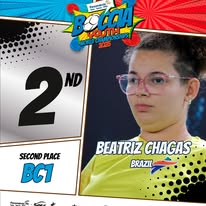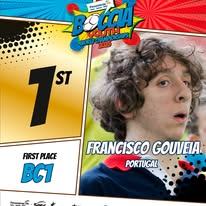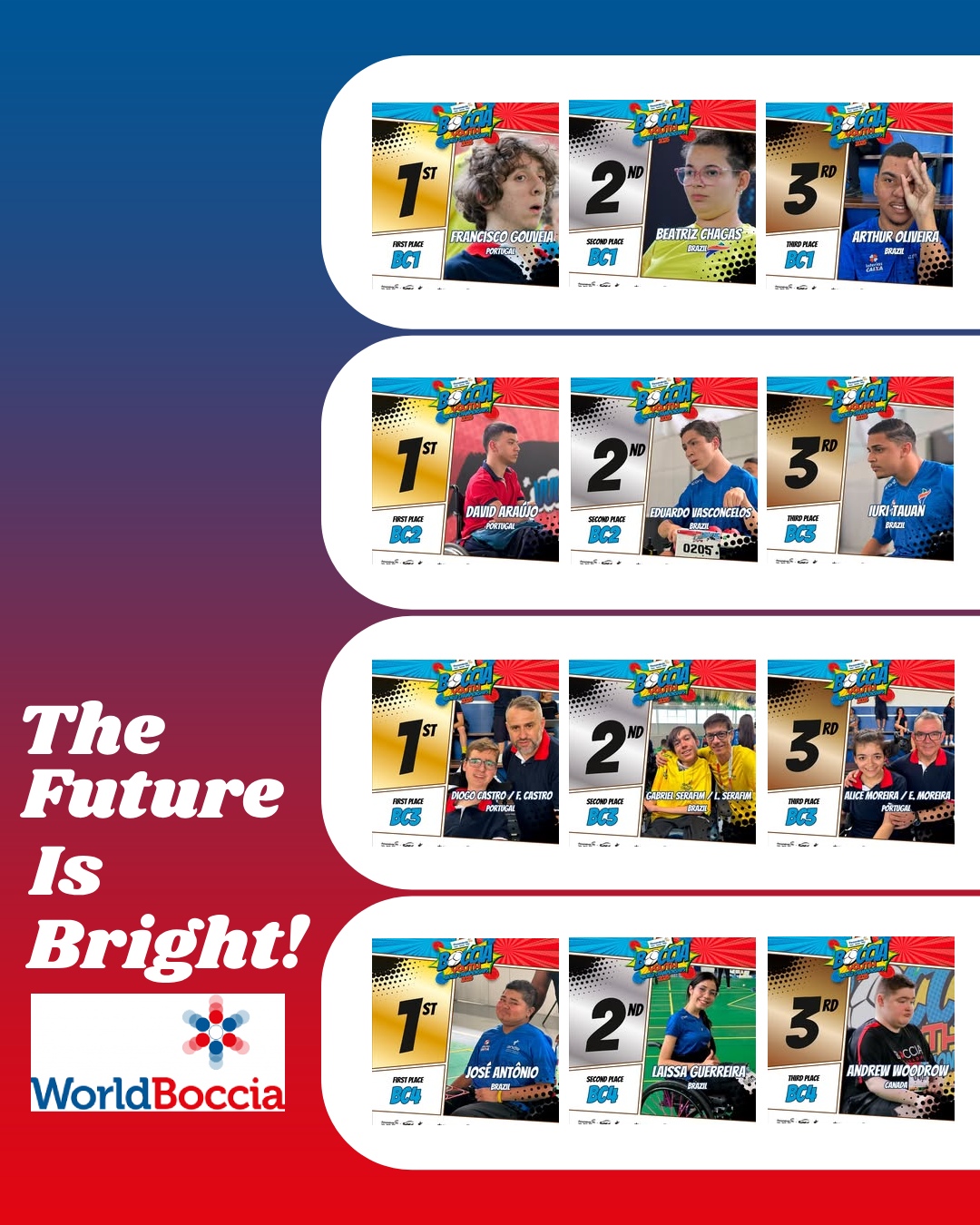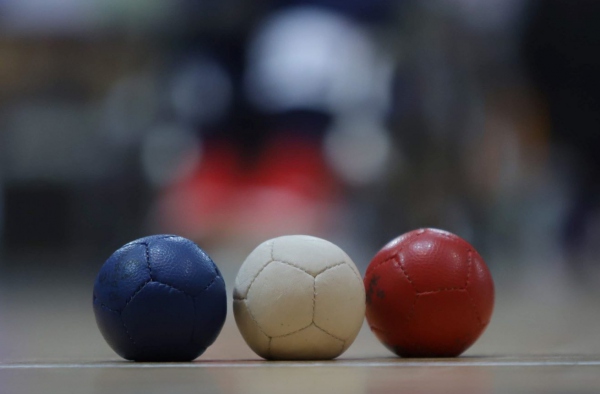By Graham Thomas
The future of boccia looks to be in safe hands if the recent World Boccia Youth Championships is taken as the guide.
Held in Curitiba in Brazil, the tournament showcased some of the best young players from around the world.
A total of 32 athletes took part, with Portugal and hosts nation Brazil leading the way in the medal table. Brazil won 12 medals in total, compared to Portugal’s nine, but the Portuguese seized most golds with five, compared to Brazil’s three.
But what struck most spectators and officials was the high standard of performance across the competition as a whole, as well as the joyful excitement of those new to competitive boccia.
We spoke to a number of the future stars of tomorrow – as well as some of their coaches – to gain their thoughts.
David Araujo (Portugal) – Age 18
BC2 Mixed gold medal winner – successfully defending his 2023 World Youth title – and also BC1/2 Team gold medal winner.
“I came to the tournament with goals for the individual and team competitions. But they were the same – I wanted to reach the final and try to take the gold.
“I think I performed well, especially in the team event final, where I felt I was almost perfect.
“My goal is to continue to improve and win more medals at competitions.
“I started playing in 2012, when I was six years old, at the APPC (Cerebral Palsy Association of Porto). But it was not until 2019 and I moved to FC Porto that I began to take things more seriously. I developed my own style and really enjoyed
competition.”
“I realised there was more to the game – there were things behind the game itself – that I needed to practise, because this sport is not easy.

“In terms of my playing style, Worawut Saengampa is the player that I like the most and whose style is most similar to my own.
“My goal now is the European Championships in Zagreb and to try and reach the podium.”
Andre Tavares (Portugal)
Head coach
“We have seen a very high level of players at this tournament, because it is always difficult to have an equal level of ability at youth level.
“Some of them competing here, though, participated at the Paralympics in Paris and so we have seen some great standards.
“Having won medals at the last World Youth Championships, it was stressful for us to try and do that here again.
“We wanted to at least maintain our level in terms of results and in general we have succeeded in doing that.
“This type of competition is the future of the sport – giving young players a pathway from early age to understand what you need to play at international level.”
Andrew Woodrow (Canada) – Age 17
BC4 Pairs gold medal winner – together with Joice Lira (Brazil) – and also BC4 Mixed bronze medal winner.
“I came here aiming to do my best, but also to learn. I didn’t know whether I would be able to win a medal because I wasn’t sure how stiff the level of competition would be.
“I feel I’ve performed well, maybe better than I expected. In the pairs, I was with a Brazilian team-mate who didn’t speak English, so that was good for me to figure out how to communicate without words.
“The level of competition here was a lot higher than back home in Canada – more competitive and more skilled.
“I got involved in boccia when I was 13, through a programme run in Newfoundland and Labrador. That got me into the provincial level and eventually to play internationally.
“My favourite thing about boccia is that it’s one sport that I can do. I can’t do a lot of sports because of my disability, but boccia is something I can do and I can compete against people of similar abilities to myself.
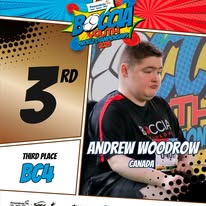
“I play because I enjoy it, but also to test my abilities – how I can perform in tense situations.
“I wouldn’t say I have any particular boccia player as a current hero, but there are Canadian players who have helped and inspired me, like Marco Dispaltro and Alison Levine.”
Mario Delisle (Canada)
High performance director
It was really important for Canada to support these Youth Championships, and I’d like to see more countries support this initiative.
Maybe the schedule needs to be looked at again, so there are no clashes, but for me it’s important that the international federation has its own junior championship.
It will push more countries to develop their junior programmes in the way South Korea, Brazil and Portugal have done.”
Clarice Sobreira – (Brazil) – Age 18
BC2 Mixed Runner off bronze medal winner
“I really enjoyed the experience of playing against athletes from different countries. It is very different from playing against others from Brazil.
“I began playing when I was 10. I participated in school competitions but then I stopped playing for a while.
“I missed it, so when the chance came to come back, I moved quickly to take it.
“Here, I liked the way some athletes paired with others who did not speak the same language. That was really cool.”
Joice Lira – (Brazil) – Age 20
BC4 Pairs gold medal winner together with Andrew Woodrow (Canada)
“I loved being at these Championships because each time I play at these kinds of events, I learn more.
“I have only been playing boccia for three years and so each tournament is a learning experience for me.
“When I started doing physical therapy in my city, my physios were looking for volunteers to try bocca. I saw some videos and told them I would think about it.
“A week later, I said I would accept and not long after that I went to a regional tournament in Belem and won my first gold medal.”
